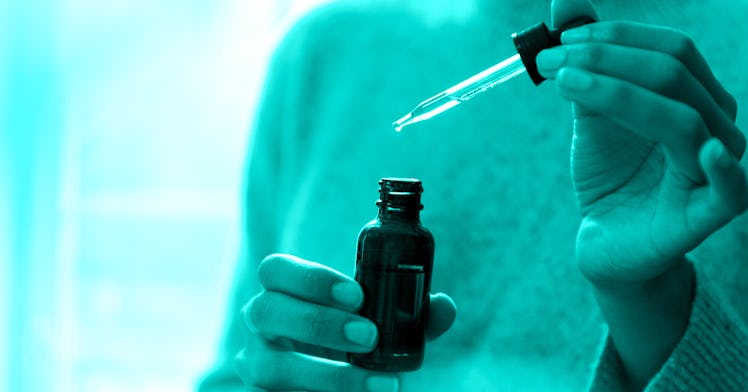Are Essential Oils Safe For Babies? What Parents Need to Know.
Essential oils typically don't have precise warning labels for parents to understand their risk

Essential oils are an $18 Billion industry. So there’s a good chance that a baby could come in contact with them, either in their own home or the home of a family member or relative. With that in mind, parents should consider infant safety: Are essential oils safe for babies to be around? Do they even have therapeutic uses for the littlest humans?
Unfortunately, it turns out that essential oils aren’t typically safe for babies according to Dr. Anna Esparham, M.D., a board-certified pediatrician at Children’s Mercy Hospital in Kansas City, who has been trained in aromatherapy. She notes that essential oils are too potent for general use with babies younger than nine months.“Essential oils can affect their secretions and their respiratory function,” Esparham explains. “Babies absorb a whole lot more due to their body surface area.” There are some caveats, however. And there are also essential oil alternatives
Can Essential Oils Ever Be Safe for Babies?
A handful of oils can be used for kids older than nine months, but they require a 1.25% dilution. But most essential oils aren’t safe for use in kids under five. Because essential oils typically don’t contain precise warning labels regarding babies, it’s difficult for parents to know which oils may have contraindications or carry the risk of side effects. Dr. Esparham recommends consulting an aromatherapist who has been certified by the National Association of Holistic Aromatherapy to help guide your use of these products. “It is tough to find the precautions unless you have actual textbooks for the essential oils,” she cautions. “Each essential oil can contain hundreds of different chemicals. You have to be mindful of the properties all these chemicals have and it’s hard to figure out unless you study it.”Additionally, Dr. Esparham estimates that 90-95% of essential oils on the market today are synthetic, which she advises can be highly hazardous. When reading labels, she says to ensure that the product is classified 100% natural, using the plant’s botanical name. “For example, if it were lavender, it would have to say 100% Lavendula Angustifolia,” she explains. The other other important detail to consider is the oil’s age. As essential oils oxidize, they can result in intense skin irritation. And since they don’t have a long shelf life, purchasing oils through a certified aromatherapist is preferable because they typically get their supply directly from the manufacturer.
What Can I Use For My Baby Instead of Essential Oils
Dr. Esparham recommends hydrolats or hydrosols as far safer alternatives to essential oils for people of all ages, but this comparison is especially relevant to babies. Whereas essential oils contain the oil-soluble elements of a plant that require chemicals for extraction, hydrolats are water-based solutions that include some of the chemical and therapeutic properties of essential oil without irritants.“If your baby is having colic or spasms, Roman chamomile is a hydrosol that’s generally safe to use in babies,” she says. “But you still need to be cautious. I still wouldn’t recommend diffusing it.”
Other Considerations With Hydrosols
The FDA regulates neither hydrosols nor essential oils, so use them at your own risk. Dr. Esparham emphasizes that you’ll want to look for organic certification on labels because that indicates fewer unwanted chemicals are present. Any chemicals used in farming can end up in the highly concentrated oils.Finally, while these products can be helpful, it’s imperative never to use them to replace medical care. Look to a trained professional for guidance, and call your doctor immediately if your
baby develops any skin irritation, wheezing or difficulty breathing, or any other symptoms while using oils or hydrosols.
This article was originally published on